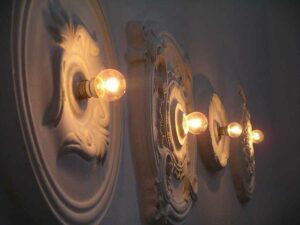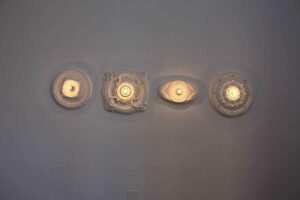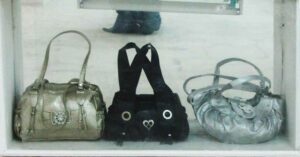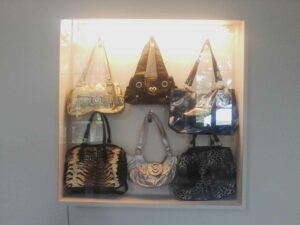Faten Eldisouky, born in 1984, graduated with a degree in Fine Arts from the University of Alexandria in 2006 and is a curator at the Museum of Fine Arts in Alexandria. In her artistic practice she addresses the formation and dissemination of taste.
Museum of Fine Arts Alexandria
https://museum-of-fine-arts-alexandria.business.site
Anachronism
Installation
2010
The variety of tastes is limited in Egypt, due to the fact that the Egyptian market is restricted to certain tastes. Looking back, we can see these tastes attributed to the previous occupiers who passed through Egypt and affected the Egyptians’ psychology, which led to their dependence on these countries and to bragging about the acquisition of those pieces to compensate for this feeling of inferiority. Also, the occupations (the English, the French, and the Ottomans) left a profound impact on social and cultural behavior and public taste. This is especially true of the Ottoman occupation, due to the long period of rule, the possession of much agricultural lands, and the Egyptians’ use of cultivation and attention to it, in addition to their mistreatment of the Egyptians and their superiority over them. All this left a trace in their souls, which was compensated by the acquisition of pieces that follow the taste of the occupier, and politics too has a role in creating this dependency. The piece of art in the exhibition is a reproduction of many pieces of this style of taste and there are not many tastes in the market that are in line with Egyptian culture and nature. Four gypsum shapes with light bulbs fixed to them. Different shapes that reflect a sole, common, inherited taste.
Novelty
Installation
2010
Different, shiny colors and shapes. A mirror reflecting a general taste. It reflects the impact of economic, political, and social factors. Egypt started a new political and economic era under Al Saddat’s reign from 1971 till 1981 where the so-called “economic openness” came into effect. This is the free movement of private, local, Arabic, and foreign capital and the free pricing of products and factors of production through the spontaneous interaction of the market powers in terms of supply and demand without any interference on the part of the state.Many merchants hunting for quick profits started importing and selling cheap products that are now greatly sweeping into the market. These products are made from simple materials, but they are accessorized/festooned/bejeweled to suit the common taste in Egypt.




